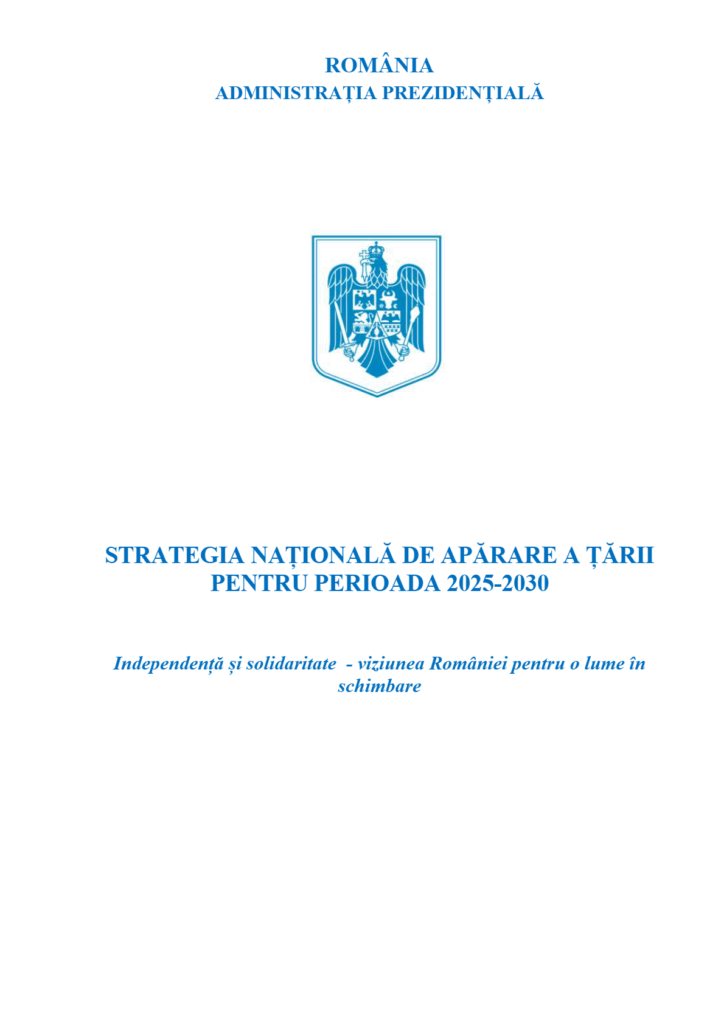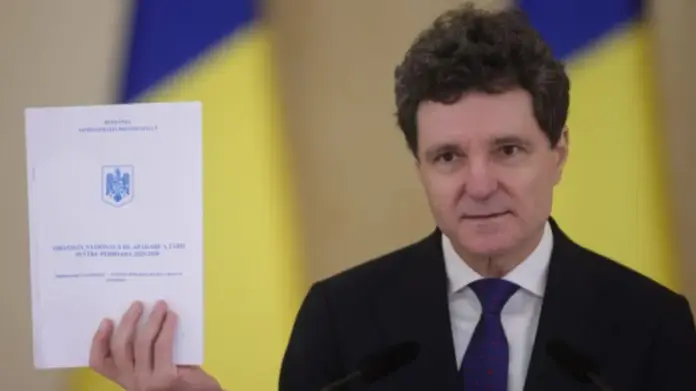Romanian President Nicusor Dan presented the new National Defense Strategy 2025–2030, emphasizing Romania’s plan to strengthen regional security amid the ongoing war in Ukraine and instability in the Black Sea region. He highlighted the growing influence of authoritarian regimes, sabotage, and cross-border threats that challenge the rules-based international order. Romania reaffirms its commitments within NATO, the European Union, and its strategic partnership with the United States. The Romanian president noted that digitalization and disinformation create new security fronts, while regional stability increasingly depends on cooperation and connectivity around the Black Sea. In this context, Romania identifies both economic and strategic opportunities in the defense industry and commercial diplomacy—areas that directly affect the Republic of Moldova.
“This strategy differs essentially from those before it because the context itself is different,” the president declared at the beginning of his speech, presenting the document.
The National Defense Strategy of Romania for the next five years establishes a partnership with the Romanian nation, making the Romanian people the main actor and beneficiary. The document builds on a realistic assessment of the multidimensional threat from Russia’s hostile actions, as well as risks from the broader regional security environment.
“The strategic threat created by the Russian Federation also affects the Republic of Moldova, the state with which we share language, history, culture, and a European destiny. This circumstance makes strengthening and diversifying Romania’s commitment to its most important neighbor one of the key objectives of this Strategy,” the document states.
Russia’s military posture, its aggression against Ukraine, and the militarization of Crimea since 2014 endanger Black Sea security, threaten navigation and offshore energy resources, and undermine the stability of the Republic of Moldova.
Romania positions itself as a regional actor with a key role in ensuring security and stability on NATO’s Eastern Flank and aims to transform the Black Sea region into a zone of stability, connectivity, and prosperity, where states manage security through dialogue and cooperation.
“Due to its geographical position and geostrategic importance, the Black Sea remains an area of competition and divergence among actors with opposing political, economic, energy, and security interests. The Black Sea continues to hold strategic significance for Euro-Atlantic security, and Romania will continue its efforts to keep NATO and EU attention focused on this region,” the document adds.
The strategy warns that delaying the European integration of the Republic of Moldova and Ukraine would increase security risks for NATO allies, echoing statements made by Moldovan President Maia Sandu.
The document stresses that Romania must use European and NATO policies, resources, and partnerships effectively, particularly its strategic partnership with the United States, to manage conventional and hybrid threats while strengthening its geostrategic position in the region. “NATO initiatives have the potential to enhance and consolidate national infrastructure. Mobility corridors and dual-use critical infrastructure can be developed and operationalized to facilitate both military and economic mobility.”
Romania’s national interest and objective remain to strengthen its profile regionally—on NATO’s Eastern Flank, in the Black Sea area, in the Western Balkans, within NATO and the EU, and in relation to strategic partners.
The strategy also sets the goal to support the stability and economic development of the Republic of Moldova through stronger integration of sectoral public policies, aiming to reinforce the security of this state located at the frontier of the EU and NATO.

The Presidency published the strategy for public consultation on its website. The Supreme Council of National Defense will adopt it on November 24, and President Nicusor Dan will present it to the Romanian Parliament on November 27.


